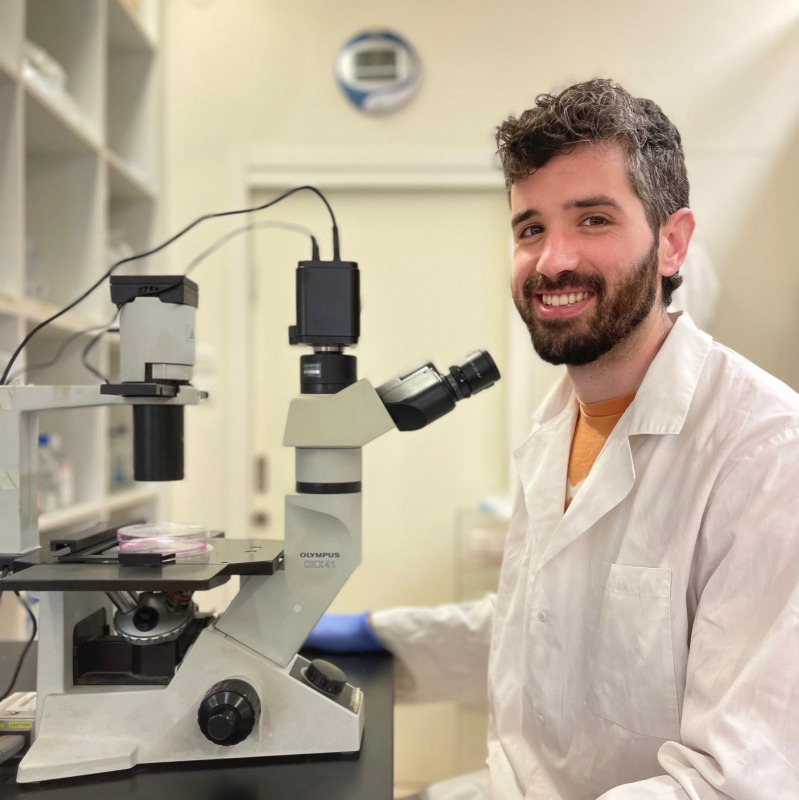
Assa Sherman loves biology. He remembers the sense of awe learning about the miniscule processes that underly life during high school. “Each cell contains the exact same DNA,” he says. “But the fact that each cell expresses different genes, leading to the synthesis of different proteins, which then determines the cells developmental fate and function – is simply magical.”
Assa became the first in his family to pursue a university education when he enrolled in the Hebrew University’s undergraduate program in chemistry and biology. He participated in an honors program, which is how he met Hebrew University Prof. Nissim Benvenisty, who is a leading expert in stem cell biology. “I knew I wanted to be part of that field and part of his research group,” Assa recalls.
Assa decided to continue to a master’s degree, and received funding from the Strasal Foundation. For his master’s degree, Assa studied human pluripotent stem cells, which exist in the early days after fertilization. Their unique capacity to differentiate into any cell in the human body makes them superior for modeling human development and disease and a key for regenerative medicine. “I knock out different genes and compare the outcomes,” Assa explains. “Sometimes these alterations result in rapid cell multiplication, while other changes reduce proliferation or even in cell death. This process helps me identify the functions and the essentiality of different genes in the embryonic stage”.
Assa recently transferred to the direct PhD track in Prof. Benvenisty’s lab. “I’m very lucky,” he reflects. “Prof. Benvenisty’s dedication to his students knows no boundaries. He is immensely invested in his students’ success and wellbeing. He guides, helps, challenges, and supports me.”
For his doctoral research, Assa is studying a specific type of genes that do not translate into protein, but rather act through their RNA molecule. This subset contains ~3,000 genes, about which little is known. He has characterized a number of these genes and is even about to introduce new genes to the scientific community. The applicability of his research is immense. Assa’s work is crucial for our understanding of early human development and will be key to developing better cell therapy and diagnostic tools, along with improving human health and healthcare in the future.
Assa greatly enjoys studying at the Hebrew University, where cutting-edge research is so integrated into the curriculum, making him a better scientist. In addition, he is thankful for his scholarship, which enables him to dedicate all his time to research and his academic skills.
“Studying in Jerusalem, at the Edmond J. Safra campus, is like nothing else. The campus is surrounded by national institutions and offices, reminding me on a daily basis that we too are part of Israel’s national heritage.”


